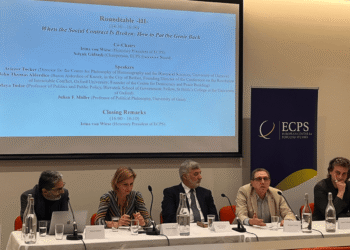By Vasiliki Tsagkroni
Just within less than two decades, the world has been experiencing an era of constant crises; from the economic crisis that erupted in 2008 that led to the eurozone sovereign-dept crisis, to the EU crisis that followed the UK’s vote to Brexit, to the refugee crisis of 2015 emerging from the confluence of conflicts in the Middle East, to a more recent health crisis of Covid-19 pandemic, and a culmination of democratic back-sliding, raising a debate on a possible ongoing crisis of democracy. The latter has brought populism to the centre of the discussions at an academic level and in the broader societal audience due to the observation that crisis and the rise of populism are intertwined. The existing scholarship on populism has constantly been expanding, reflecting the steady growth of populist actors across the globe; from transforming democracies in Latin America since the early 1990s (Weyland, 2013; Levitsky & Roberts, 2011) to the populist far-right in the early 2000s in Europe (Betz & Immerfall, 1998; Mudde, 2007) and from the newer expressions of inclusionary populism that occurred after the economic crisis of 2008 (Mudde & Rovira Kaltwasser, 2013), to Brexit and Trump and the menace of nationalist populism (Inglehart & Norris, 2016) and the populism in post-communist context (Pirro, 2013).
The emergence of populism has sparked a debate regarding its definition and raised the issue of the ambivalent relationship between populism and democracy. The latter pinpoints the need to identify populist breakthrough and persistence causal mechanisms in different environments. The multiple and variable explanations of the effect of populism spurred a level of confusion and disagreement among scholars when it comes to comprehending this phenomenon and its impact on democracy, with studies urging deluging effects and others calling for no concerns. However broad the debate is, though, including among other issues of definition, use of the term, strategies of measurement, causes and consequences, a shared thought underlines every discussion: populism has changed politics on a fundamental level.
See Full Text


